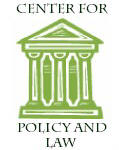|
New IRmep book now available!

on Twitter!
Audio




|
6/15/2005
A Summit between South America and the Arab World
The May 10-11 Summit of South American, Arab nations aimed to boost cooperation,
register displeasure with the United States policyOn May
10-11, top officials from 34 South American and Arab nations gathered to boost cooperation
between the regions. Convened to promote economic, cultural, scientific and political
cooperation, the summit ended with a broad declaration covering issues of high concern to
Arab and South American nations.
Trade flows between Brazil and the Arab market totaled $8.19 billion dollars in 2004, five
percent of Brazil's total trade revenue. Shipments of sugar, chicken and beef from Brazil
to the Middle East are among the fastest growing exports according to the Arab-Brazilian
Chamber of Commerce, which estimates Brazilian exports to Arab countries could double
within five years. Petroleum accounts for most imports to South America from the Arab
market. Some of the estimated 10 million South Americans of Arab descent, many living in
Brazil, maintain family and commercial ties to their country of origin. Many traders were
present at a separate seminar and fair for businesspeople held during the summit which
hosted 1,250 entrepreneurs, 700 Brazilians, 250 from the Arab world, and 300 from the rest
of South America.
The document signed at the event, the Declaration of Brasilia,
provides insights into Latin and Arab perspectives about US foreign policy. US
policymakers would do well to understand key issues in the declaration which could later
emerge as coordinated demands from a larger Latin-Arab bloc pursuing mutual interests
during future trade negotiations. Key points in the declaration call for:
1. Respect for international law and the United Nations as the preferred
forum for conflict resolution;
2. Resistance to unilateral actions and sanctions made outside the UN
assembly;
3. Support for broader measures to eradicate hunger and poverty;
4. Nuclear disarmament and non-proliferation; particularly in the Middle
East;
5. A "just peace" to the Israeli Palestinian conflict and
complete withdrawal of Israeli forces from territories occupied in 1967;
6. Stronger UN role in the reconstruction of Iraq;
7. Recognition of the importance of antiterrorism efforts, with a call
for an international conference to precisely define terrorism;
8. Recognition of all peoples' right to resist foreign occupiers;
9. Promotion of scholarships and special cross cultural educational
programs;
10. Respect for Arab and Latin cultural heritage and diversity;
Members of the Arab market are unlikely to find the breadth and depth of suppliers for
their increasingly complex capital investment needs in South America. Still, the signals
sent from the conference provide broad "customer feedback" to US exporters
interested in how US policy affects trade flow. Formal steps to understand and minimize
these sore points between the US and the Arab market should be launched well before the
next summit takes place in two years.
|

 Sign
up for IRmep's periodic email bulletins!
Sign
up for IRmep's periodic email bulletins! Sign
up for IRmep's periodic email bulletins!
Sign
up for IRmep's periodic email bulletins!